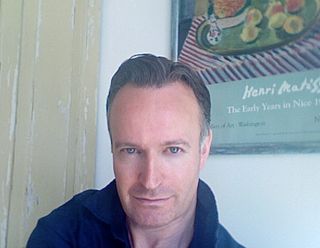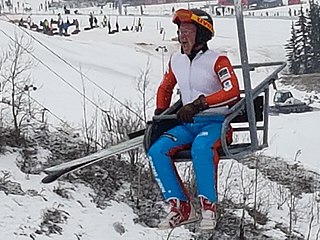A Quote by Andrew O'Hagan
I had always been literary, in the sense of loving poetry and discovering novels, but I found my voice, as they say, in an office full of elderly people who looked after blind ex-servicemen.
Related Quotes
I don't know that I had a sense that there was such a thing as "the poetry world" in the 1960s and early 70s. Maybe poets did, but for me as an onlooker and reader of poetry, poetry felt like it was part of a larger literary world. I mean, even the phrase "the poetry world" reflects a sort of balkanization of American literary and artistic life that has to some extent happened since then.
I've had enormous luck and enormous pleasure in working in such forms as movies and plays that I loved when I was a kid and I just - because I could always write dialogue, because I always had a sense of how people spoke. And because I had a strong narrative sense; growing up and loving stories, loving novels, I just seem to know how to tell a story and I read a lot, I went to a lot of movies, I went to a lot of plays, and it rubbed off on me. And that's all. It just rubbed off on me.
How sadly things had changed since she had sat there the night after coming home! Then she had been full of hope and joy and the future had looked rosy with promise. Anne felt as if she had lived years since then, but before she went to bed there was a smile on her lips and peace in her heart. She had looked her duty courageously in the face and found it a friend--as duty ever is when we meet it frankly.
All I am in private life is a literary critic and historian, that's my job...And I'm prepared to say on that basis if anyone thinks the Gospels are either legends or novels, then that person is simply showing his incompetence as a literary critic. I've read a great many novels and I know a fair amount about the legends that grew up among early people, and I know perfectly well the Gospels are not that kind of stuff.
There's a sameness about American poetry that I don't
think represents the whole people. It represents a poetry
of the moment, a poetry of evasion, and I have problems
with this. I believe poetry has always been political, long
before poets had to deal with the page and white
space . . . it's natural.
As poetry is the highest speech of man, it can not only accept and contain, but in the end express best everything in the world, or in himself, that he discovers. It will absorb and transmute, as it always has done, and glorify, all that we can know. This has always been, and always will be, poetry's office.







































